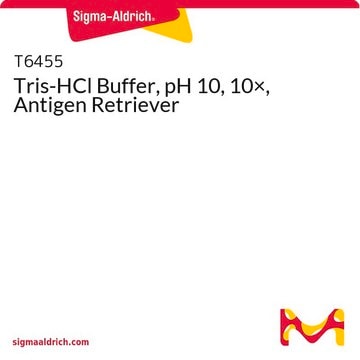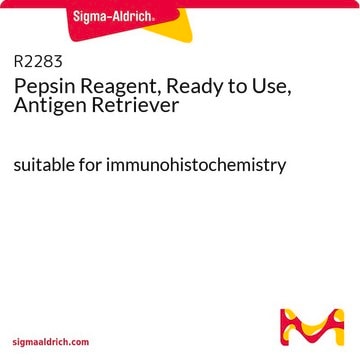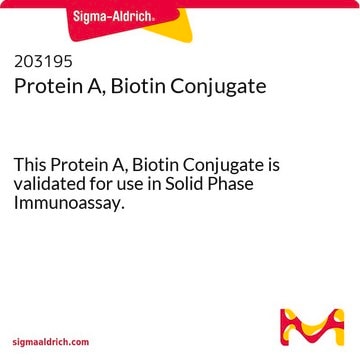E1161
EDTA Buffer, pH 8.5, 10×, Antigen Retriever
Se connecterpour consulter vos tarifs contractuels et ceux de votre entreprise/organisme
About This Item
Code UNSPSC :
12352107
Nomenclature NACRES :
NA.47
Produits recommandés
Application
Used as a heat-induced antigen retriever on formalin-fixed paraffin-embedded (FFPE) tissue sections prior to application of antibodies. In immunohistochemistry (IHC), most commonly used fixatives such as formalin mask tissue antigens (cellular, membrane, and nuclear) by their intrinsic crosslinking. This masking results in poor or no staining in IHC. The use of EDTA buffer, pH 8.5, or other antigen retrieval solutions on FFPE tissue sections improves accessibility of antibodies to tissue antigens. EDTA buffer has been used to heat tissue sections in order to visualize antigens by immunohistochemical analysis.
Mention d'avertissement
Warning
Mentions de danger
Conseils de prudence
Classification des risques
Aquatic Chronic 3 - Skin Sens. 1
Code de la classe de stockage
12 - Non Combustible Liquids
Classe de danger pour l'eau (WGK)
WGK 3
Point d'éclair (°F)
Not applicable
Point d'éclair (°C)
Not applicable
Certificats d'analyse (COA)
Recherchez un Certificats d'analyse (COA) en saisissant le numéro de lot du produit. Les numéros de lot figurent sur l'étiquette du produit après les mots "Lot" ou "Batch".
Déjà en possession de ce produit ?
Retrouvez la documentation relative aux produits que vous avez récemment achetés dans la Bibliothèque de documents.
Les clients ont également consulté
Expressions of matrix metalloproteinases 2, 7, and 9 in carcinogenesis of pancreatic ductal adenocarcinoma.
Jakubowska K, et al.
Disease Markers, 2016 (2016)
Thomas J Gniadek et al.
Modern pathology : an official journal of the United States and Canadian Academy of Pathology, Inc, 30(4), 530-538 (2017-01-07)
Predicting response to checkpoint blockade therapy for lung cancer has largely focused on measuring programmed death-ligand 1 (PD-L1) expression on tumor cells. PD-L1 expression is geographically heterogeneous within many tumors, however, and we questioned whether small tissue samples, such as
Hong-Wei Sun et al.
Cancer immunology research, 9(1), 20-33 (2020-11-13)
Metabolism is reprogrammed in cancer to fulfill the demands of malignant cells for cancer initiation and progression. Apart from its effects within cancer cells, little is known about whether and how reprogramed metabolism regulates the surrounding tumor microenvironment (TME). Myeloid-derived
Notre équipe de scientifiques dispose d'une expérience dans tous les secteurs de la recherche, notamment en sciences de la vie, science des matériaux, synthèse chimique, chromatographie, analyse et dans de nombreux autres domaines..
Contacter notre Service technique












